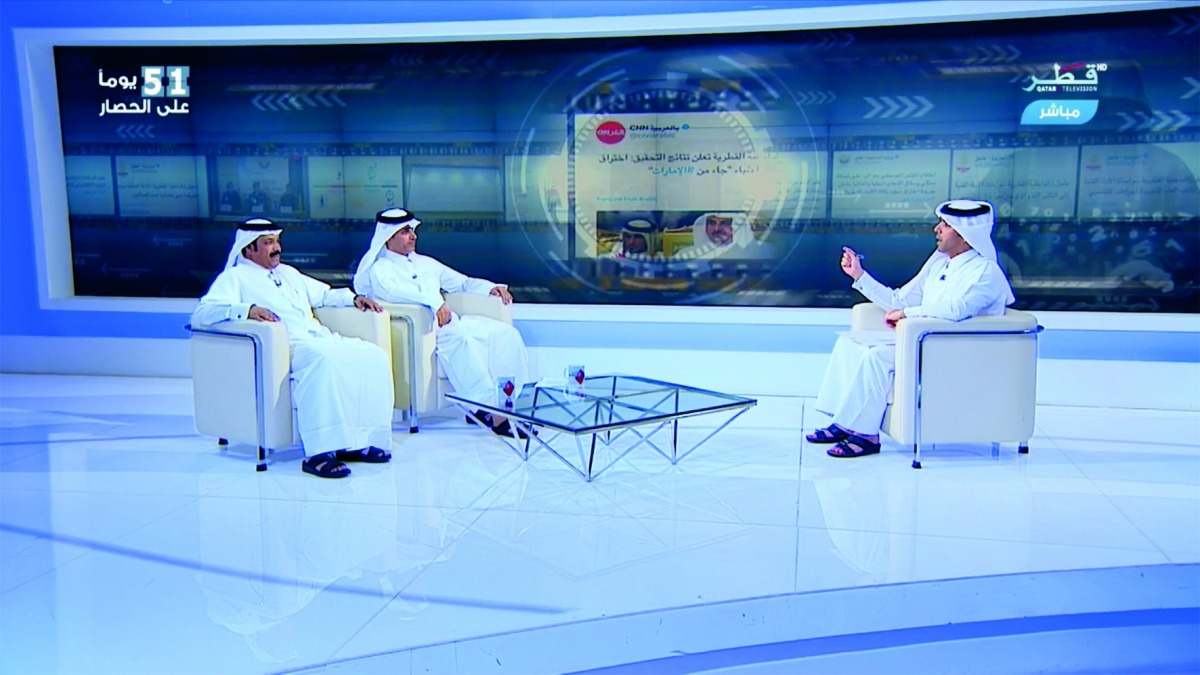
Dr. Khalid Mubarak Al Shafi, Editor-in-Chief of The Peninsula.
International community is dissatisfied with the lingering GCC crisis as many countries have various interests in the region. A number of high profile visit, including visits of foreign ministers of the US, France and Germany and Turkish President, to resolve this crisis shows the importance of this region.
“They have visited Qatar, Saudi Arabia and Kuwait to accelerate mediation and to say that any dispute in this region may affect others’ interests,” said Dr. Khalid Mubarak Al Shafi, Editor-in-Chief of The Peninsula while talking on a Qatar TV talk show ‘The Truth’ on Tuesday.
He added that, “Turkish President Recep Tayyip Erdogan had stressed during his visit that the region cannot bear more crisis, and in the last statement Erdogan expressed some hope and positive signs which he had seen in his visit to the region.”
Replying to a question about why the siege counties had released a new list, he said that, “The aim of releasing such a list is to prolong and extend the crisis, and as I said there are some signs of solutions though they are weak.”
“No one recognises these lists and the UN has rejected them. If we see, it is linked more to the UAE, Yemen and Libya.” He said that the siege countries had retreated demands from 13 to six.

When asked whether Al Arabiya and Skynews channels could replace Al Jazeera, he said that the people in Saudi Arabia call Al Arabiya as ‘al-ibriyah’ because of its tendency to spread lies.
Al Jazeera, which was established in 1996, has replaced the old media that used to focus on coverage of VIPs and brought all voices, even to those having contrary opinion, even during their coverage of blockade.
For his side, Jaber Al Huwail, Director of the Legal Affairs Department at the National Human Rights Committee (NHRC), said that it was a mistake to mix political issues with human rights.
He said that the number of complaints filed by people affected by blockade was about 3,000.
“These complaints varied from people to people like complaints on lost properties, education and transport and also about separation from their families,” he said adding that, “We receive some complaints from people saying that they have workers in Saudi Arabia and cannot send them money and cannot travel to them.”
He added that the religion should not be mixed with politics. “I met with a number of Umrah and Haj agents who said they could not send money to book hotel rooms and Qatari riyals were not accepted in Saudi Arabia. The agents are afraid as they cannot offer protection to their pilgrims for any services.